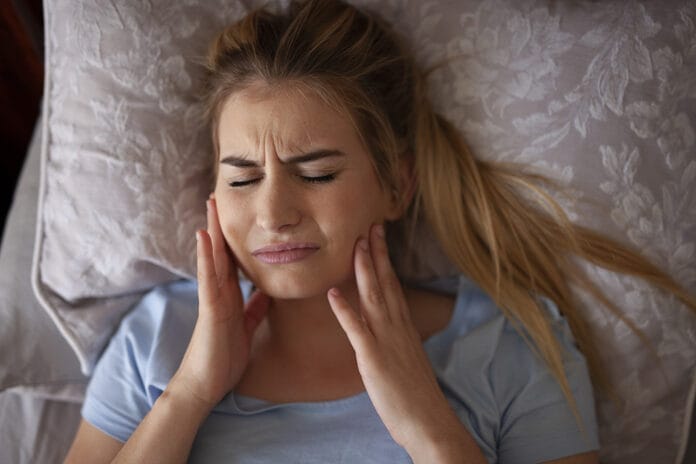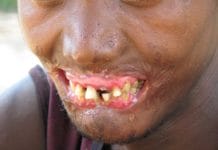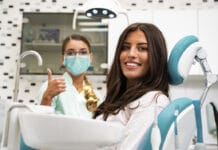Botulinum toxin (or Botox) injections is an innovative treatment for patients who suffer from intense pain in their jaw and facial muscles. A recent study published in the September 2020 edition of the Journal of Oral Rehabilitation titled, “Effect of multiple injections of botulinum toxin into painful masticatory muscles on bone density in the temporomandibular complex” examined the effects of the neurotoxic protein on patients with the disorder. The research findings suggest that while lower doses of botulinum toxin injections do not cause significant bone changes over a short time period, it may lead to bone loss when administered in higher doses.
Temporomandibular Muscle and Joint Disorders
Over 10 million Americans suffer from temporomandibular muscle and joint disorders. According to the National Institute of Dental and Craniofacial Research, temporomandibular muscle and joint disorders (or TMJD) occurs when someone feels pain in their masticatory muscles or temporomandibular joint.
Over time the disorder can make it extremely difficult for patients to chew, swallow, or open their mouth. Some people may experience neck pain, lockjaw, or a dislocated jaw bone. A degenerated temporomandibular joint is another common symptom of temporomandibular muscle and joint disorders.
Common Therapy Treatments for Temporomandibular Muscle and Joint Disorders
The pain and severity of temporomandibular muscle and joint disorders can sometimes be mitigated with ice packs, jaw exercises, oral appliances, pain medication, and soft foods. Patients can also try to stop harmful habits like teeth grinding since it can place pressure on the muscles, tissues, and other structures around their jaw.
Since some patients do not respond to these treatments, researchers are now turning to botulinum toxin as a possible treatment method. Originally botulinum toxin was approved by the Food and Drug Administration to reduce wrinkles and other cosmetic enhancements, but medical officials are exploring how it can help patients with temporomandibular muscle and joint disorders due to its ability to treat certain muscle and pain disorders.
The Study
The research was led by Karen Raphael, a professor in the Department of Oral and Maxillofacial Pathology, Radiology and Medicine at NYU College of Dentistry. Her team included David Sirois, Vivian Santiago, and Malvin Janal from the NYU College of Dentistry, as well as Alan Lurie and Aditya Tadinada of the University of Connecticut School of Dental Medicine. The research was funded in part by the National Institutes of Health’s National Institute of Dental and Craniofacial Research.
For their study, Raphael and her team examined 79 women diagnosed with temporomandibular muscle and joint disorders. They gave 35 women between two and five rounds of Botox injections and used other treatment methods for the remaining participants. The study documented the patient’s jaw bone density and volume with specialized CT scans.
The researchers discovered there was virtually no comparable difference in the jaw bone density and volume between the participants who received Botox injections and those who did not. However, the scientists did observe a positive association between higher doses of Botox injections and lower bone density.
In Conclusion
Previous preclinical trials with animals also revealed that higher levels of Botox injections caused major jaw bone loss. Based on their findings, Raphael and her team strongly recommend that other scientists conduct future clinical trials with humans to gain more insight into how Botox injections may affect patients’ bones and muscles with temporomandibular muscle and joint disorders, especially when they receive it over a long period of time. They hope it will provide more answers on whether Botox injections can alter bone resorption in a patient’s jaw muscles and bones.
Before you leave, check out the Today’s RDH self-study CE courses. All courses are peer-reviewed and non-sponsored to focus solely on pure education. Click here now.











